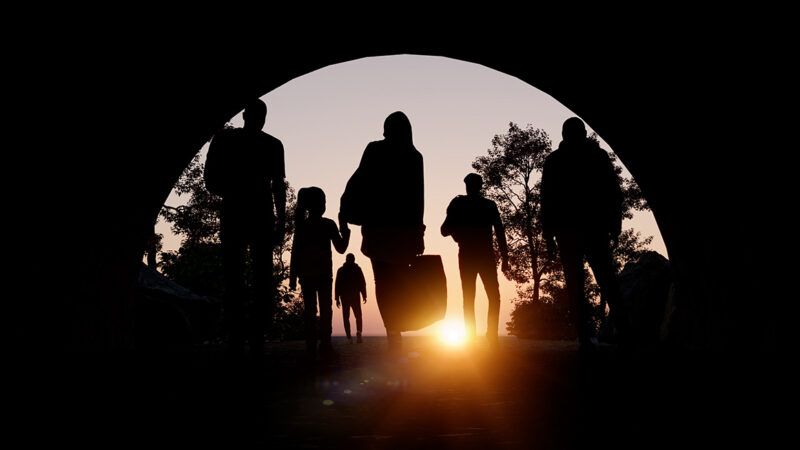Biden Strengthened the Refugee Resettlement System. Will Trump Undo It?
Refugee resettlements last year hit a 30-year high, but that progress is fragile.

In FY 2024, the U.S. resettled 100,034 refugees—the highest number in 30 years and about nine times the number resettled in FY 2021. The 2024 tally is a reason to celebrate and a reminder that refugee resettlement is highly subject to presidential whims.
America's modern refugee resettlement system was established in 1980. The U.S. legally defines a refugee as someone who is living outside of his home country and can't or won't return to that country because of previous or potential persecution based on certain criteria, such as race, religion, or political opinion. The U.S. has resettled over 3 million refugees since 1980. The year-by-year level has varied dramatically due to the president's powerful role in shaping refugee admissions.
"More than in other areas of immigration, in which Congress sets caps on the number of annual visas and admissions, the president has wide latitude to determine the maximum number of refugees admitted each year (and from where), in consultation with Congress," notes an analysis by the Migration Policy Institute (MPI), a nonpartisan think tank.
Donald Trump set a lower and lower ceiling every year of his first term, and while Joe Biden promised to change course during his presidency, that proved difficult. Until FY 2024, the total number of refugees admitted to the country was far lower than the ceiling Biden set, in large part because Trump-era policies hobbled the resettlement infrastructure.
Several factors contributed to the 2024 rebound. In addition to increased funding, technological modernization (i.e., conducting video interviews rather than in-person ones and digitizing case materials) improved government agencies' capacity to interview and process applicants. The MPI explains that "concurrent processing," which enables multiple steps such as medical checks and security screening to happen simultaneously, has shortened screening times dramatically.
Bigger-picture changes helped too. The Biden administration rolled out Safe Mobility Offices across Latin America, which aim to provide locals with information about migration pathways, including refugee admissions. Another initiative, the Welcome Corps, allows U.S. citizens and lawful permanent residents to privately sponsor refugees, building resettlement capacity and reducing the government's financial and logistical burdens.
According to the United Nations, there were 43.4 million refugees around the world in 2024—a number that has tripled over the past 10 years. The U.S. is in a position to help, and refugees help the U.S. in return. In addition to enriching and revitalizing communities, refugees start businesses at a disproportionately high rate and contribute billions in tax dollars to federal, state, and local coffers.
Improvements to the resettlement system are easy for a future administration to undo, and with Trump returning to the White House, refugee admissions are likely to fall. It's not yet clear which changes Trump will impose or how deeply they will affect people seeking protection, but it would be a mistake for America to abandon its opportunity to welcome refugees and benefit from their presence.
This article originally appeared in print under the headline "The Fragile U.S. Refugee Resettlement System."


Show Comments (176)